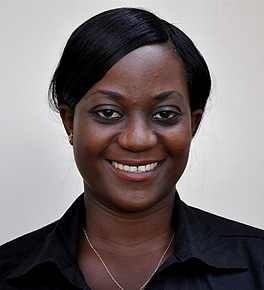OUR FELLOWS

OUR FELLOWS
Catherine Sakala, a tsetse fly control biologist with Zambia’s Ministry of Agriculture and Livestock, is determined to help control trypanosomosis in cattle and humans. Trypanosomosis is the most pervasive and serious cattle disease in sub-Saharan Africa, which kills between three and seven million cattle annually and costs farmers millions of dollars in lost production and treatment costs. It is transmitted mainly by blood-feeding tsetse flies that infect susceptible animals and humans with the causative trypanosome parasite. An estimated 48,000 people die annually from the disease, known as sleeping sickness in humans, according to the International Livestock Research Institute.
Trypanosomosis is considered to be one of the most important constraints to rural development in Africa, and Zambia is no exception,” says Sakala. “There are whole regions that are so infested that no livestock can survive there at all because farmers can’t afford to raise their animals in a protected environment or to buy the prophylactic medicines.
Field of Research
Focusing on practical measures to control tsetse fly in rural areas.
